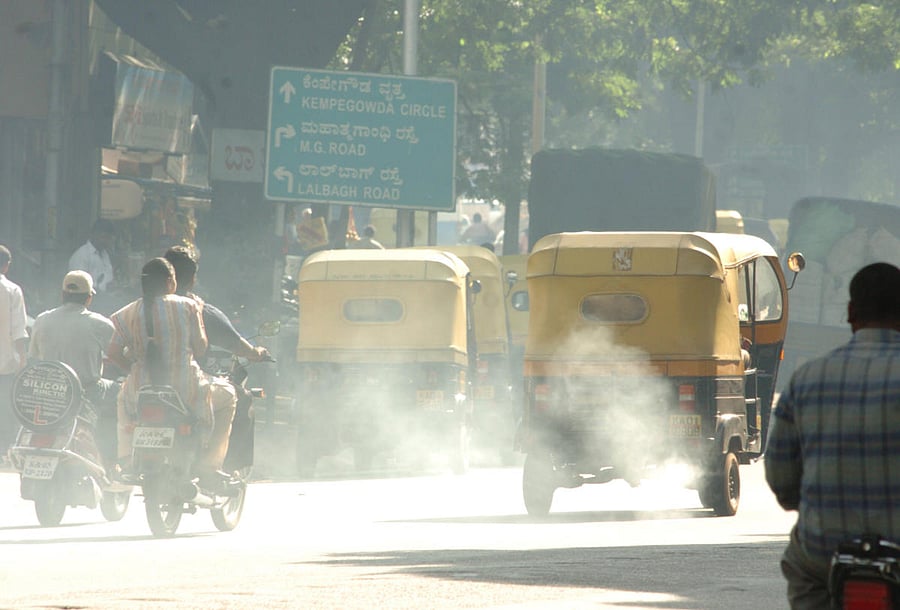
An estimated 12,000 people in Bengaluru died in 2020 due to air pollution, which claimed a total of 1.6 lakh people across the world, according to a study by Greenpeace, which showed that Delhi, with 54,000 deaths, fared the worst in the world.
Mumbai stood second in the country, following Delhi with 25,000 deaths. While Bengaluru stood third, the cities in neighbouring states did not fare better either. Polluted air is estimated to have killed 11,637 people in Hyderabad and 10,910 in Chennai.
Greenpeace analysed the real-time ground-level PM 2.5 pollution collated in IQAir’s database. The study applied a methodology developed by the Centre for Research in Energy and Clean Air (CREA), to assess scientific risk models in combination with population and public health data to estimate the health and economic costs of air pollution exposure.
The report said that the temporary improvement in air quality seen during the lockdown was lost soon as the unlock measures led to the pollution levels bouncing back.
The study also calculated the estimated economic losses directly related to air pollution in terms of both direct healthcare costs and reduced economic productivity. In addition, a welfare cost was measured by converting it into the amount people were willing to pay to avoid health risks.
According to data shared by Greenpeace, the estimated economic cost of pollution in Delhi was Rs 58,000 crore, followed by Mumbai (Rs 26,912 crore) and Bengaluru (Rs 12,000 crore).
The study noted that besides PM 2.5, there were other pollutants like nitrogen oxide (NO2) which has spatial variability, ozone (O3) and sulphur dioxide (SO2) for which data availability was poor.
Avinash Chanchal, Climate Campaigner at Greenpeace India, said the number of deaths as well as the cost will go up much higher if one includes the effects of other pollutants. Factoring in NO2 in cities like Bengaluru and Delhi, which have high traffic density and congestion, will lead to higher numbers, he said.
He said it is crucial for governments to invest in green and sustainable solutions to reduce the drastic impact of pollution on the economy. "We need to ensure our growth demand is fuelled by sustainable and cleaner sources of energy and cities should promote low cost, active and carbon-neutral transport options," he added.
